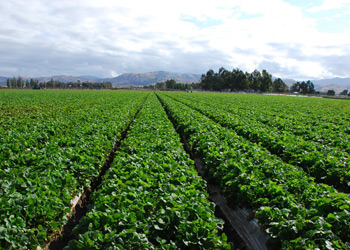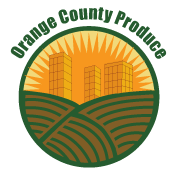
Urban agriculture takes a more vigilant kind of farming. For those growers who do not own the ground they farm on there are challenges and limitations in how they approach their land stewardship. Without ownership of the ground, a farmer has to make many cultural decisions based upon a short-term framework. He does not have the leisure to let ground sit fallow for several years and build soil carbon with improved tilth. To be good stewards of the land, urban farmers recognize that they must focus on sustainable soils through a combination of old and new technologies. Sustainable farming includes the regular use of traditional composts as well as the introduction of soil friendly microbes. We pay close attention to crop rotations that helps minimize the build up of soil pathogens, while utilizing nitrogen-fixing legumes to improve nutrient availability. We have come to recognize that beneficial insect populations are critical partners in pest control.
Agriculture in Orange County is very progressive and intensive all at the same time. The optimum cultural and management practices are used. These include: Drip irrigation; GPS satellite information systems; extensive tissue and soil analysis; precision “spoon-feeding” of micronutrients and other fertilizers; the introduction of beneficial insects and habitat creation for other beneficial insects. All of these practices take place within the watchful eyes of nearby urban residents. The heightened sensitivity to urban concerns (such as dust, tractor noise and mud on the road!) makes the urban farmer very aware of his need to be a ‘good neighbor’. For over 50 years the the growers of Orange County Produce have been working on the fine art of farming, all the while moving forward and improving upon their sustainable practices.
